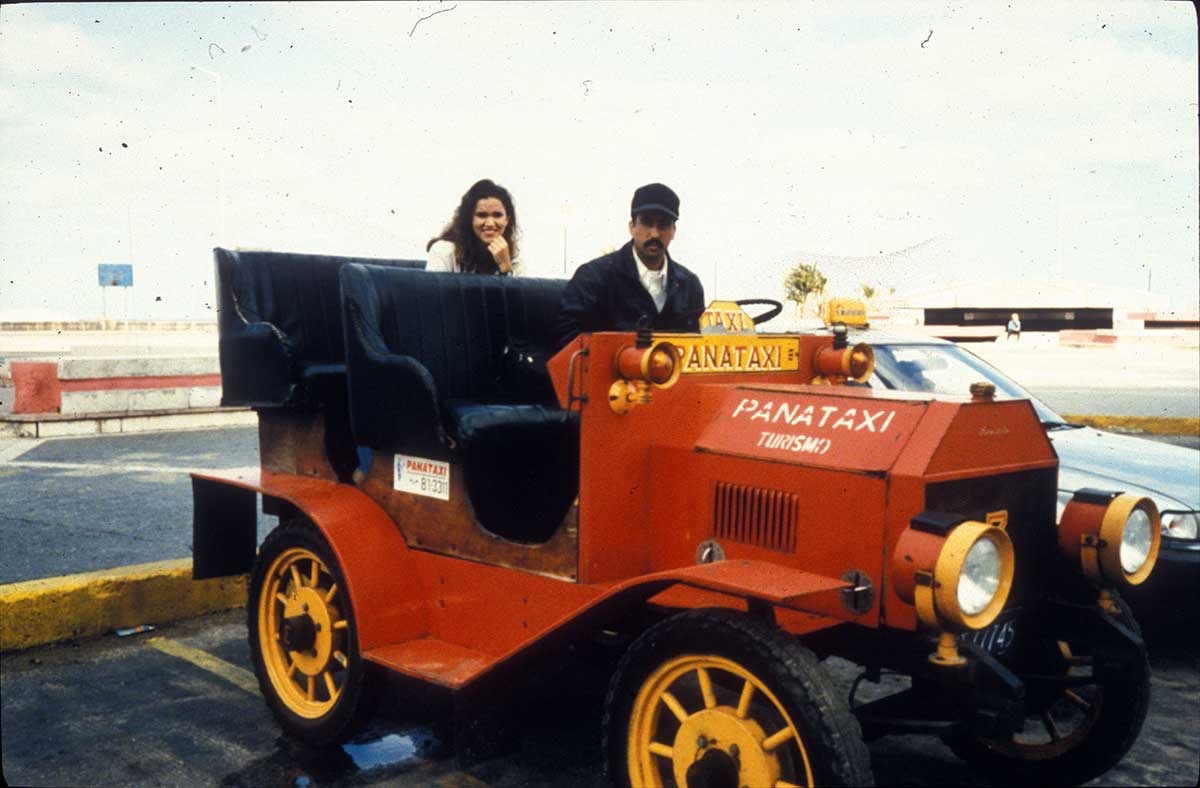When the Cuban state authorized self-employment in 1993 for the first time since 1968, it also created a dual currency system which, theoretically, was to ensure that hard currency (the US dollar) flowed from the hands of foreigners, especially tourists, directly to the state. That meant that Cuban entrepreneurs whom the state licensed to sell pizzas or taxi rides in the national currency (moneda nacional) were supposed to serve only other Cubans exclusively—not foreigners. Yet try as state officials might, foreigners always seemed delighted to purchase their drinks, rides and black-market cigars, hams and cheeses from Cuban businesses, whether or not they were licensed, rather than the state. At first, the state tried to out-compete with citizens. It sometimes relied on novel strategies like buying up old, broken cars and restoring them to fit foreign tastes. Panataxi, a state-owned franchise, restored the 1930s American car seen here into an open-air taxi. Beginning in 1998, however, crackdowns, raids, and law-decrees that eliminated the right of Cubans to own a business if it cut into government revenues became cyclical strategies that increase the state’s monopoly on the economy. The same strategies persist to this day. Nonetheless, Cuban entrepreneurs (particulares in the local parlance) have also persisted. Given half a chance, citizen ingenuity usually trumps the state. El Malecón, Havana, 1997.
